August 4, 2014 Auroras
Grand Rapids, MN
I noted a southward Bz much of the evening, but it was fluctuating a fair bit. The solar wind speed was hovering around 400 km/s, so I thought conditions might be good enough to go out. I tend to wait until I see GOES magnetometer readings drop to 50 nT, and it was indeed trending in that direction, but not quite there yet. Also, the electron flux will also drop precipitously at the onset of any bright auroras, but that hadn't happened yet. A look from my front yard revealed nothing, so I decided to drive to the north side of town so that I wasn't looking over as many street lights.I drove up to McKinney Lake and could see a very diffuse oval.
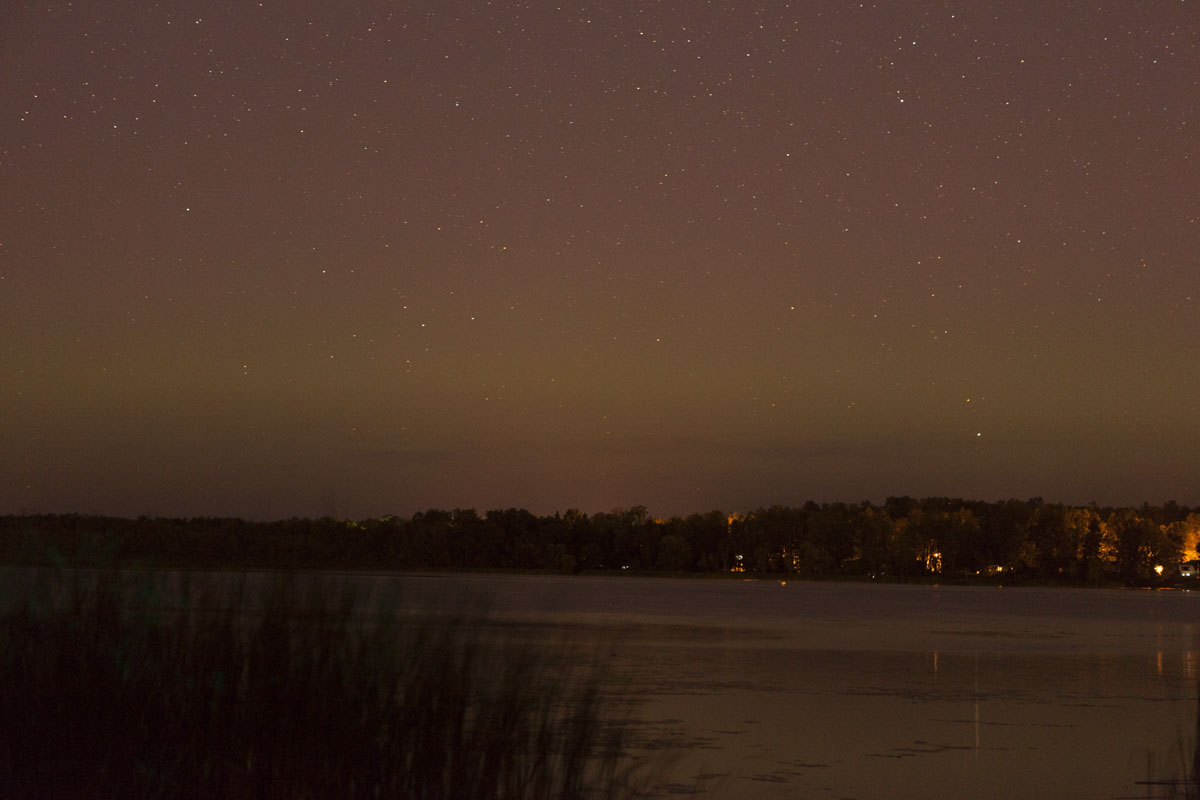 |
| Very dim auroras, shot at 70mm, f2.8, ISO 1600, 15s. |
With not much going on, I decided to do some focus testing to see how good my memorized infinity points were on the lenses. Just as I was finishing up a test, a substorm started! This appeared to happen just as the GOES electron flux and magnetic field dropped. I had my 24-70mm lens on the camera, which I don't do very often (usually have 24mm prime), so I snapped one picture at 24mm then a few pictures at a tigher focal length (48mm) than I normally use.
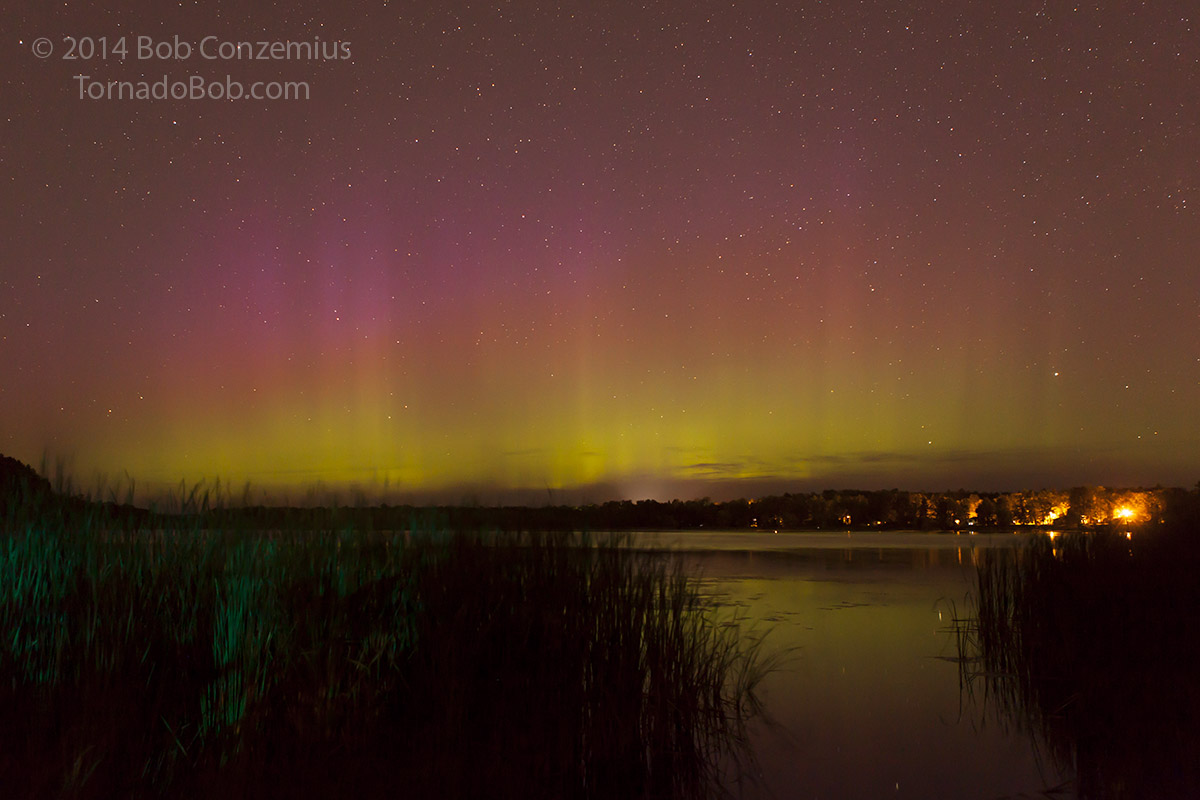 |
| 24mm. |
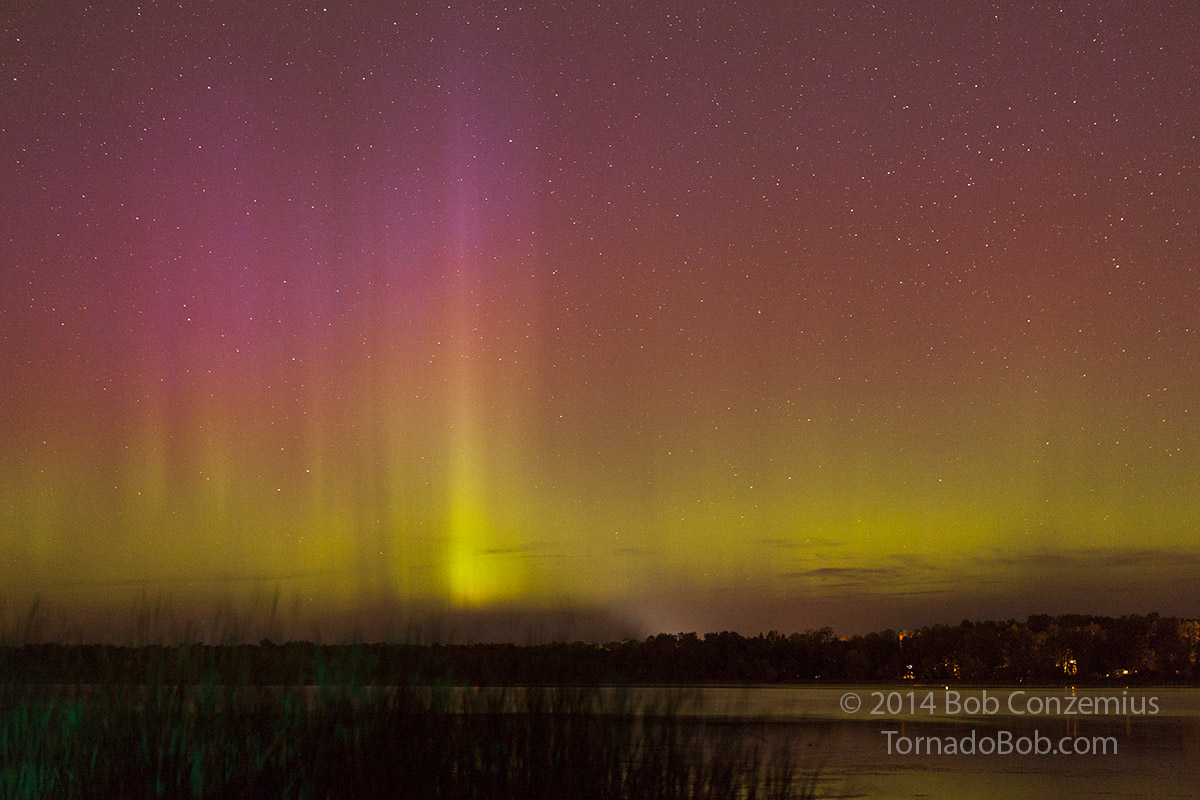 |
| 48mm. This is the best image of the night at 12:01 AM. |
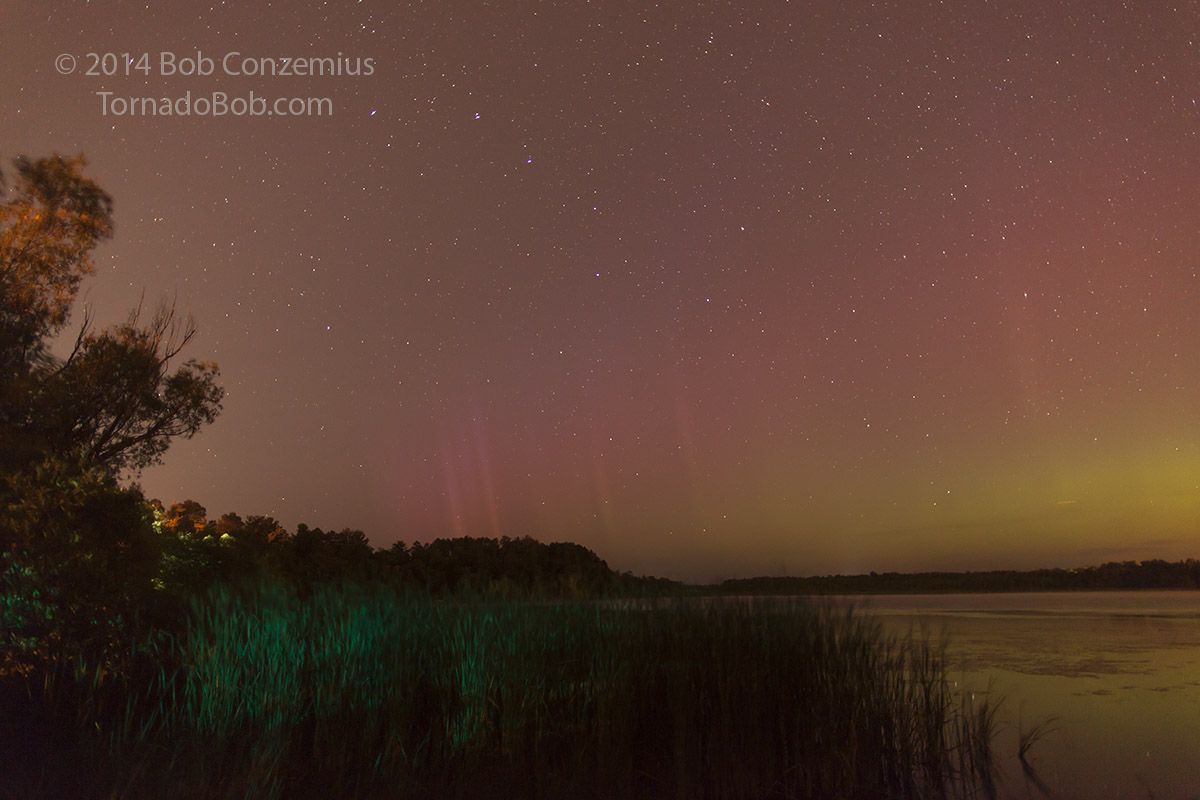 |
| 24mm prime lens, looking west-northwest. |
The show ended quickly. I drove over to Forest Lake to attempt some shots there, but there was more haze than there had been on July 26, so the Forest Lake location did not work out as well. I called it an "early night" (yeah, right-- 1:00 AM) and headed home. Overall, it was a nicely timed event.
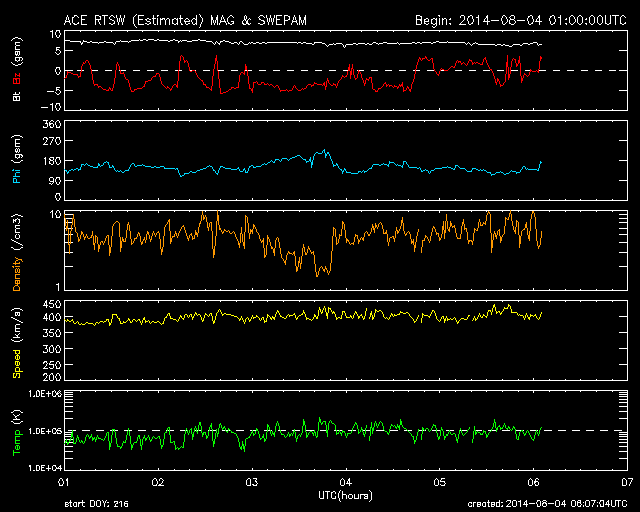 |
| ACE MAG/SWEPAM data courtesy of SWPC. |
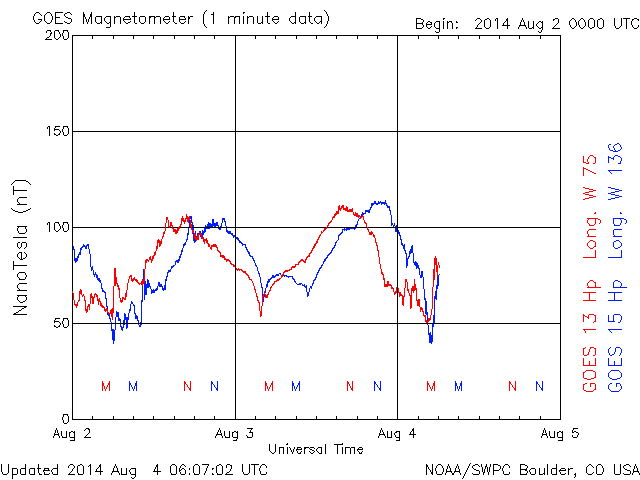 |
| GOES magnetic field data. |
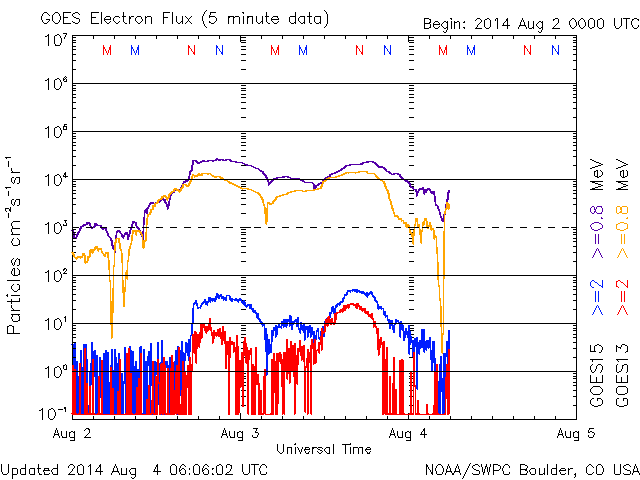 |
| GOES electron flux data. |
Back to Auroras | Home





